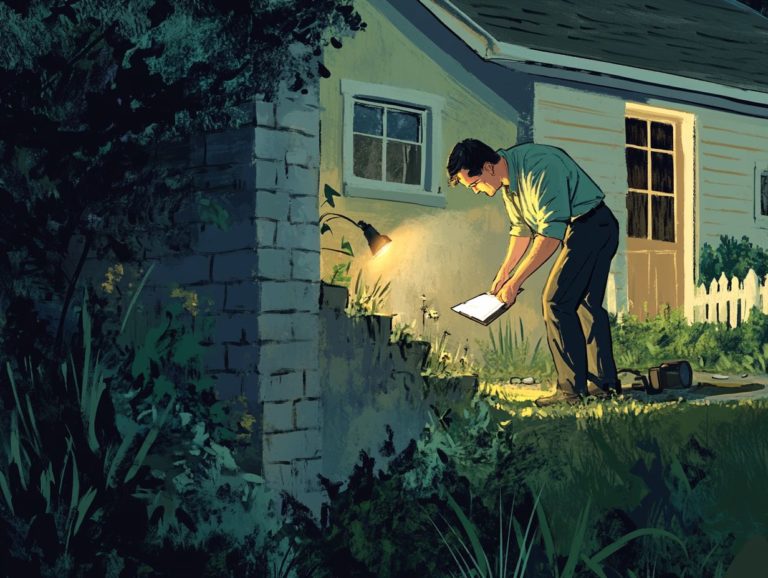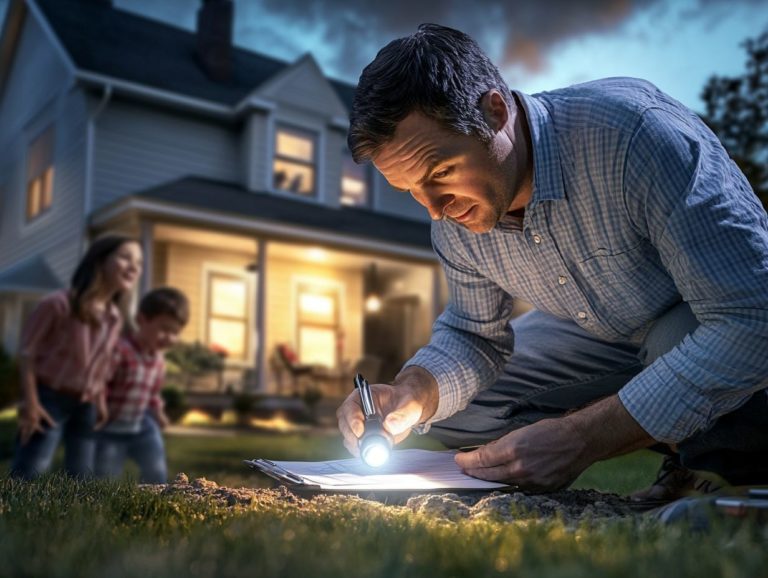The Importance of Home Inspections in Real Estate
When you re buying or selling a home, understanding the property’s condition is essential. A home inspection acts as a pivotal tool in this process, offering insights that can significantly impact your decisions, whether you re a buyer or a seller.
This article delves into the intricacies of home inspections, highlighting their importance in real estate and what you can expect throughout the inspection journey.
From common issues you might encounter to strategies for preparation and selecting the right inspector, you’ll acquire valuable knowledge to effectively navigate this crucial step in your real estate experience.
Contents
- Key Takeaways:
- What is a Home Inspection?
- Why Home Inspections are Important in Real Estate
- What to Expect During a Home Inspection
- Common Issues Found During Home Inspections
- How to Prepare for a Home Inspection
- Choosing the Right Home Inspector
- Frequently Asked Questions
- What is the importance of home inspections in real estate?
- Who is responsible for scheduling a home inspection?
- How long does a home inspection usually take?
- What are some common issues found during a home inspection?
- Can a home inspection affect the sale of a property?
- Is it necessary to attend the home inspection as a buyer?
Key Takeaways:
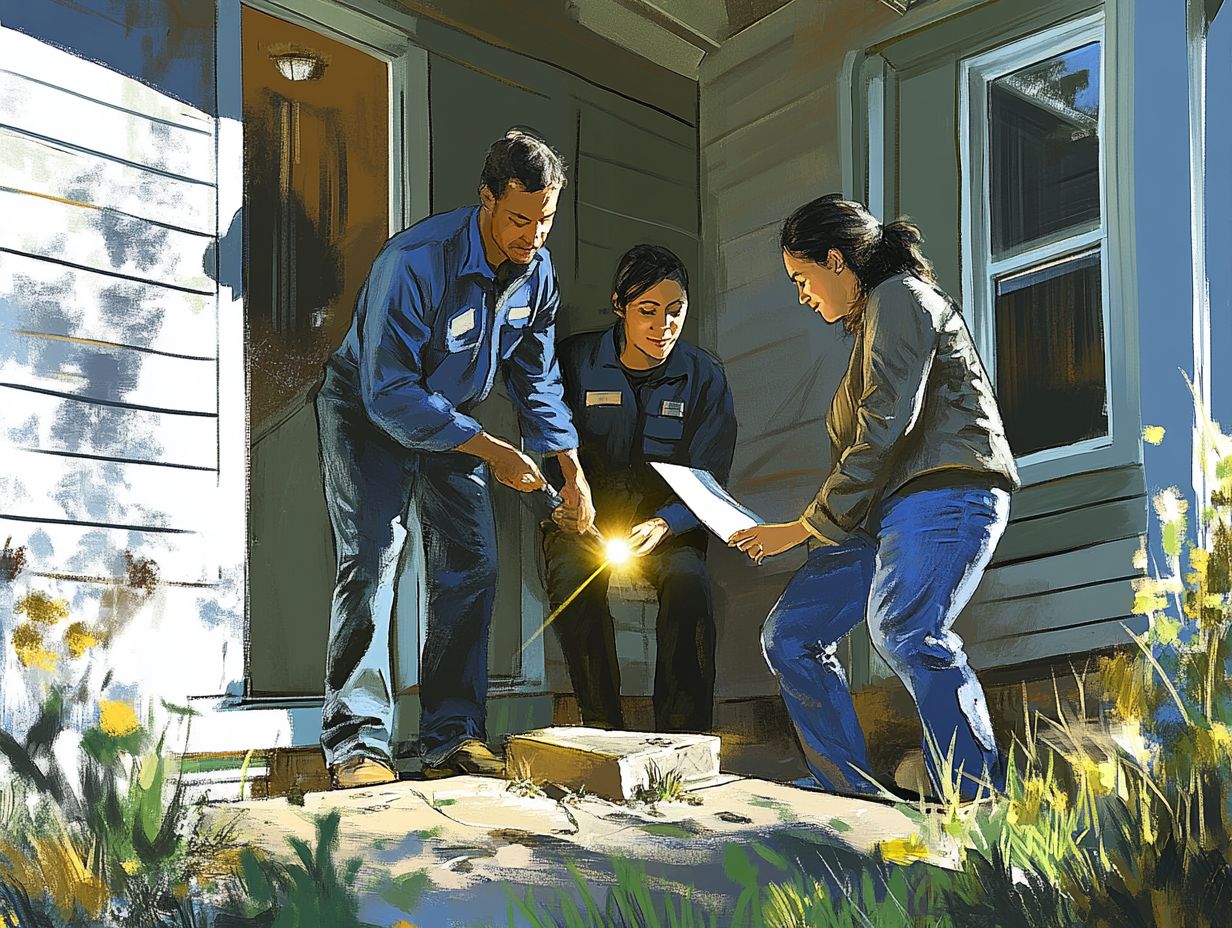
- Home inspections help buyers make informed decisions.
- Sellers can fix issues before listing their homes.
- Preparing your home for inspection is key to a smooth process.
What is a Home Inspection?
A home inspection is a thorough check-up of a property’s condition. It is carried out by a qualified home inspector to uncover any significant defects or potential issues that may impact both the safety and value of the home.
This comprehensive assessment typically includes various components, such as how strong the structure is, interior and exterior conditions, as well as the functionality of essential home systems.
For both buyers and sellers in the real estate market, understanding the importance of a home inspection for buyers is essential. It ensures informed decisions and peace of mind.
Why Home Inspections are Important in Real Estate
Home inspections are crucial in real estate transactions, offering vital insights into a property’s condition. Understanding the importance of home inspections in real estate not only guides home buyers and sellers in their negotiations but also ensures that sellers fulfill their responsibilities.
These factors can significantly impact the appraisal values of homes, making the importance of pre-purchase home inspections an essential part of the process.
What to Expect During a Home Inspection
During a home inspection, you can expect a thorough process that covers a meticulous checklist addressing various elements of the property. This includes everything from roofing and foundations to electrical systems and plumbing.
Depending on the size and condition of the property, the inspection typically takes several hours to complete. This ensures no detail goes overlooked.
Common Issues Found During Home Inspections
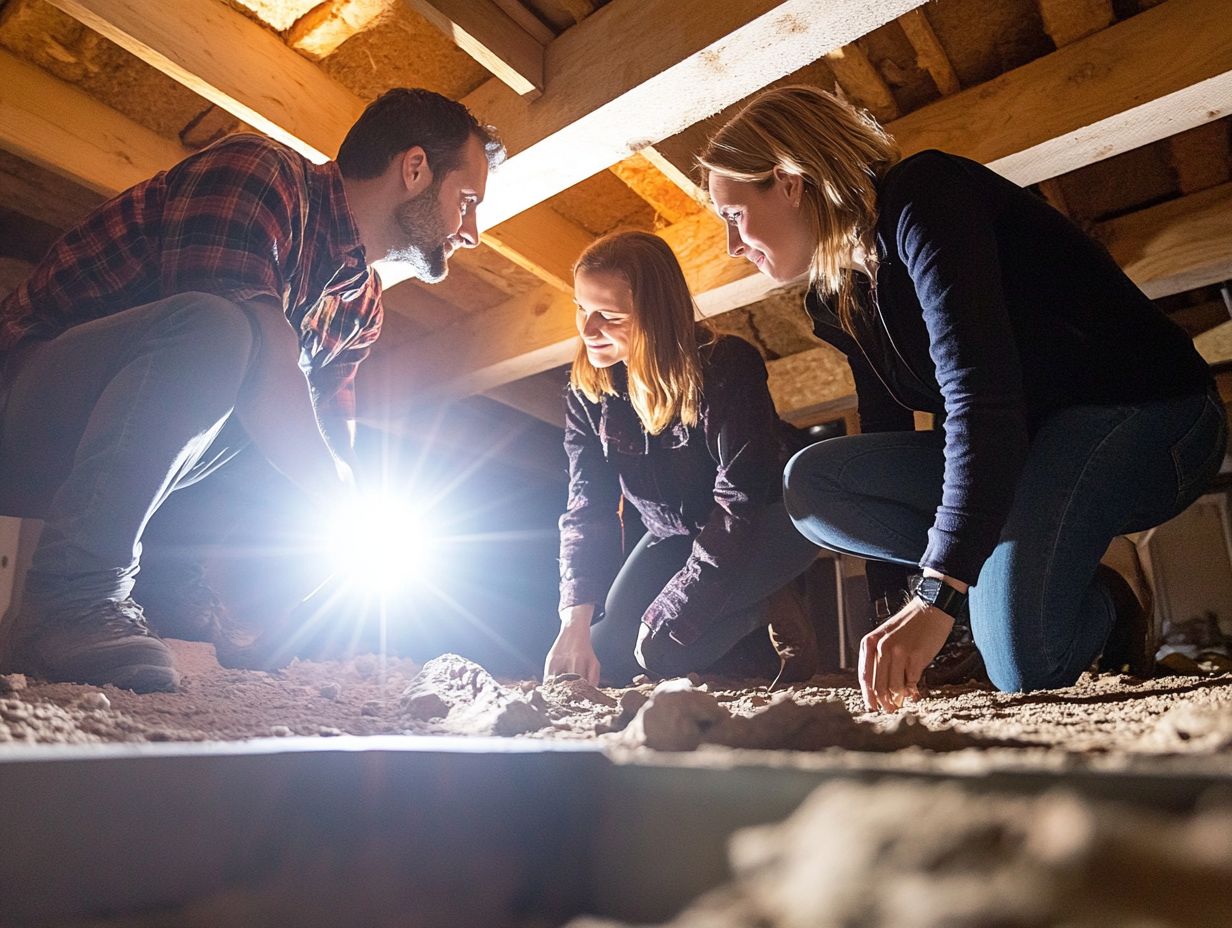
Home inspections frequently uncover a variety of common issues, ranging from minor concerns to significant problems. You might encounter electrical malfunctions, plumbing troubles, structural defects, inefficiencies in the heating, ventilation, and air conditioning system, and even the potential for mold or pest infestations.
Each of these factors can profoundly affect both the property’s value and safety. This makes the inspection process crucial for knowledge-based decision-making.
How to Prepare for a Home Inspection
Get ready for your home inspection! Whether buying or selling, this step can make a huge difference. Preparing for a home inspection involves ensuring the property shines, which means tackling minor maintenance issues and crafting a detailed inspection checklist.
By taking these steps, you enhance the property’s appeal and set the stage for a successful transaction.
Choosing the Right Home Inspector
Selecting the right home inspector is a pivotal decision for home buyers in the real estate market. It requires careful consideration of several factors, including the inspector’s qualifications, experience, and the thoroughness of the inspection report they deliver.
This process is essential as it helps you uncover potential safety risks and assess the overall condition of the property. This ensures your investment is sound.
Definition and Purpose
The purpose of a home inspection is to provide you with an objective evaluation of a property’s condition, helping you identify significant defects and potential issues before finalizing a real estate transaction. Understanding the role of home inspections in real estate is crucial for making informed decisions.
This step is important for buyers and sellers alike, as it encourages an open dialogue about the property’s overall state.
For you, as a buyer, understanding any hidden flaws can significantly influence your financial decisions and negotiations.
This knowledge may save you from unexpected repair costs in the future.
On the other hand, sellers gain valuable insights into their property s condition, allowing them to make necessary repairs or adjustments that enhance marketability.
A professional home inspector plays a crucial role in this process, as outlined in the key role of home inspections in real estate, using their expertise to conduct thorough assessments that cover everything from structural integrity to electrical systems, ensuring that no detail goes unnoticed.
Benefits for Buyers and Sellers
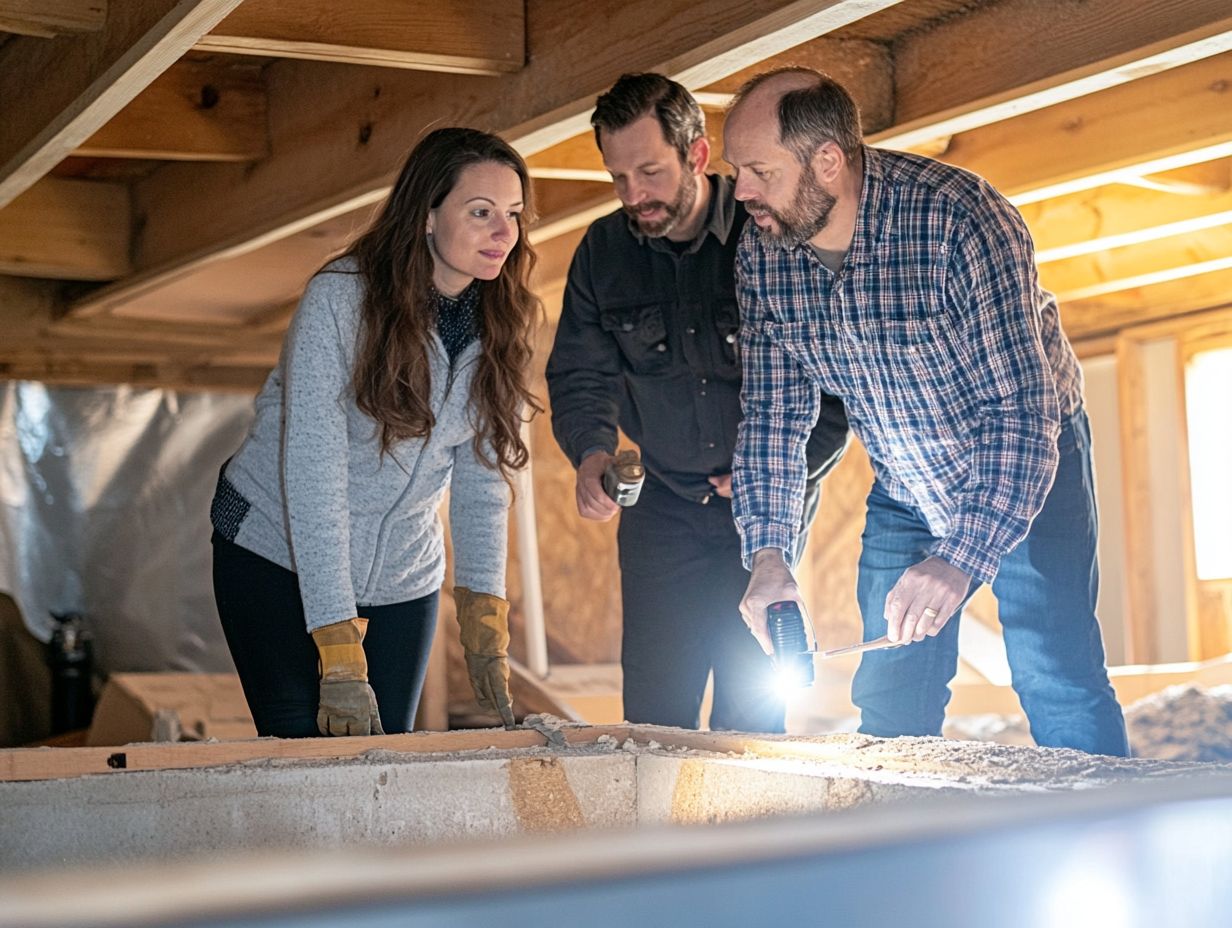
Home inspections provide a wealth of advantages for both buyers and sellers, offering buyers the chance to negotiate repairs while aiding sellers in meeting their disclosure obligations regarding property conditions. Understanding the importance of home inspections can greatly enhance the buying and selling process.
For you as a buyer, a comprehensive inspection reveals potential issues, enabling you to make informed decisions about your investment. This knowledge gives you the power during negotiations and bolsters your confidence as you proceed with the purchase.
For sellers, presenting an inspection report fosters trust, showcasing transparency and potentially validating the asking price. Ultimately, both parties reap the rewards, as inspections can streamline the sales process, minimize the risk of post-sale disputes, and pave the way for a successful transaction that satisfies everyone’s needs.
Process and Timeline
The home inspection process usually spans several hours, depending on the size of the property. It culminates in a detailed inspection report that outlines the findings essential for both buyers and sellers.
To kick things off, you ll want to schedule the inspection, keeping in mind the availability of both the inspector and everyone involved in the transaction.
Once the appointment is set, a meticulous approach becomes crucial. Inspectors will assess various aspects of the property, from structural integrity to electrical systems. The duration of this stage can vary; larger or older homes often require a more in-depth evaluation.
Preparation on your part can make a world of difference in ensuring a smooth experience. Sellers should provide access to all areas, such as attics and basements, while buyers might consider attending the inspection to ask any lingering questions.
After the walkthrough, the inspector creates a detailed report, typically delivered within a few days. This report highlights potential issues and helps in negotiations, giving you the insight needed to navigate the next steps.
Types of Problems and Their Impact
Common problems that arise during home inspections can vary widely from minor issues like cosmetic damage to major defects such as structural problems that can pose safety risks and affect property value.
Understanding the difference between these categories is essential for both homeowners and potential buyers. Minor issues, such as peeling paint or worn-out flooring, might not be urgent but can impact a home s aesthetic appeal and overall comfort.
On the other hand, major issues like foundational cracks or roof leaks can lead to serious safety hazards and necessitate expensive repairs.
Consider a deteriorating roof, for example. It can result in water damage that jeopardizes the entire structure, ultimately reducing its market value and becoming a substantial liability. Acting quickly to address these issues is crucial! It not only enhances safety and functionality but also protects the property s value for the long term.
Tips for Sellers and Buyers
Enhance your home inspection experience with a few essential tips. Completing necessary maintenance and using an inspection checklist can guide your preparations effectively.
As a seller, showcase your property in the best light. Take care of minor repairs and declutter spaces to impress potential buyers.
If you re a buyer, be well-prepared. Bring a list of questions for the inspector, such as the roof’s age and possible pest concerns.
Proactive home maintenance boosts your home’s value and builds trust between buyers and sellers. This paves the way for smoother transactions.
Frequently Asked Questions
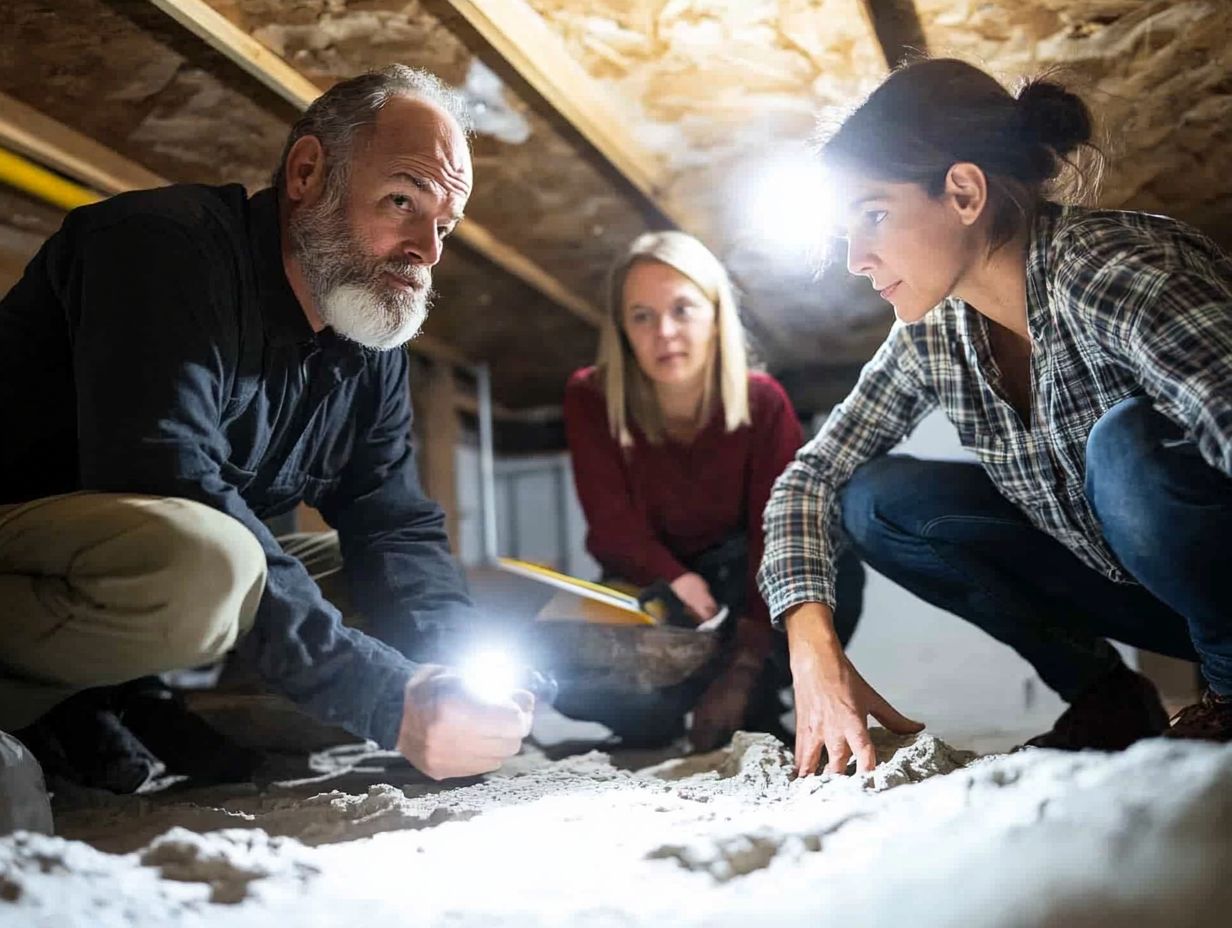
What is the importance of home inspections in real estate?
Home inspections are crucial in real estate. They provide buyers with a detailed understanding of a property’s condition before purchase, highlighting the importance of home inspections in real estate transactions.
Who is responsible for scheduling a home inspection?
Typically, the buyer schedules and pays for the inspection. However, sellers may opt for a pre-listing inspection to identify issues before selling.
How long does a home inspection usually take?
The time varies based on property size and condition. A thorough inspection takes about 2-4 hours.
What are some common issues found during a home inspection?
Common issues include structural damage, plumbing and electrical problems, roof damage, mold, and pests.
Can a home inspection affect the sale of a property?
Yes, significant issues can impact the sale. Buyers may renegotiate the price or request repairs before purchase.
Is it necessary to attend the home inspection as a buyer?
While not mandatory, it s highly recommended. Attending lets buyers ask questions and understand the property’s condition better.


